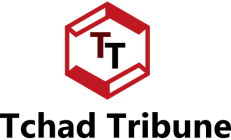Addis Ababa: The Federal Ethics and Anti-Corruption Commission announced that the asset recovery bill will enhance its capacity to effectively combat corruption. Individuals and groups engage in various criminal activities, including corruption, to amass wealth, it stated, adding that these financially motivated crimes encompass corruption, human trafficking, arms trafficking, drug trafficking, counterfeiting, illegal remittances, tax evasion, and smuggling. While these criminal activities yield substantial profits for perpetrators, they inflict severe damage on the country's social, political, and economic progress. In an exclusive interview with ENA, Gezahegne Gashaw, Lead Executive Officer of Emergency Corruption Prevention at the Federal Ethics and Anti-Corruption Commission, noted that the previous legal framework for recovering illicit assets overlooked the public sector beyond government employees. He emphasized that the commission has been actively engaged in identifying, freezing, seizing, managi ng, and ultimately confiscating assets derived from criminal activities. However, the absence of a comprehensive and independent law for recovering corruptly obtained wealth has hindered anti-corruption efforts, he added. Gezahegn noted that Ethiopia is a signatory to both the Anti-Corruption Convention and the African Anti-Corruption Convention and the central focus of these conventions is the recovery of stolen assets. He asserted that the enactment and implementation of the asset recovery bill addresses previous legal shortcomings and facilitates compliance with these conventions; and further explained that the draft bill applies to all citizens, excluding government employees, in cases involving unexplained wealth. 'Individuals who accumulate or possess wealth illicitly will face legal consequences. Such assets are considered public property subject to seizure. Previous anti-corruption laws primarily targeted government officials with unexplained wealth. However, the new bill expands this scope to al l citizens acquiring assets through illegal means,' he added. He also noted that the draft decree is expected to deter corruption by incentivizing citizens to maintain transparent financial records. Gezahegn highlighted Rwanda as a successful model in recovering stolen assets and strengthening anti-corruption efforts. Citing Rwanda, he emphasized that 'asset recovery involves not only reclaiming stolen funds but also confiscating existing illicit wealth. This demonstrates that corruption is not a profitable venture. Such comprehensive approaches significantly enhance anti-corruption initiatives'. Justice Minister Gideon Timotios explained that the current legal framework is inadequate for effectively holding individuals or groups accountable for various crimes, including corruption. He highlighted the absence of a legal mechanism to question the source of wealth for non-government officials. The asset recovery bill aims to address this legal loophole. Source: Ethiopian News Agency
Related Posts
Three Regions Account for over Half of Morocco’s Wealth in 2022, HCP Report Finds
Rabat – A recent report by Morocco’s statistics arm (HCP, Haut-Commissariat au Plan) has revealed that three regions, namely Casablanca-Settat, Rabat-Salé-Kenitra, and Tangier-Tetouan-Al Hoceima, together generated more than half of the country’s wea…
Lawful Cannabis Uses: Over 3K Authorizations Issued since Early 2024 – ANRAC
Rabat – Since the beginning of 2024, the National Agency for the Regulation of Activities Related to Cannabis (ANRAC) has issued 3,029 authorizations under Law 13-21 concerning the lawful uses of cannabis, compared to 721 authorizations in 2023.
Acc…
FG obtains $163m AfFB loan to boost wheat production – Shettima
The Vice President, Kashim Shettima, on Sunday said the Federal Government had obtained 163 million dollars loan from the African Development Bank to support wheat production in the country.Shettima stated this at the palace of the Emir of Argungu, Al…
